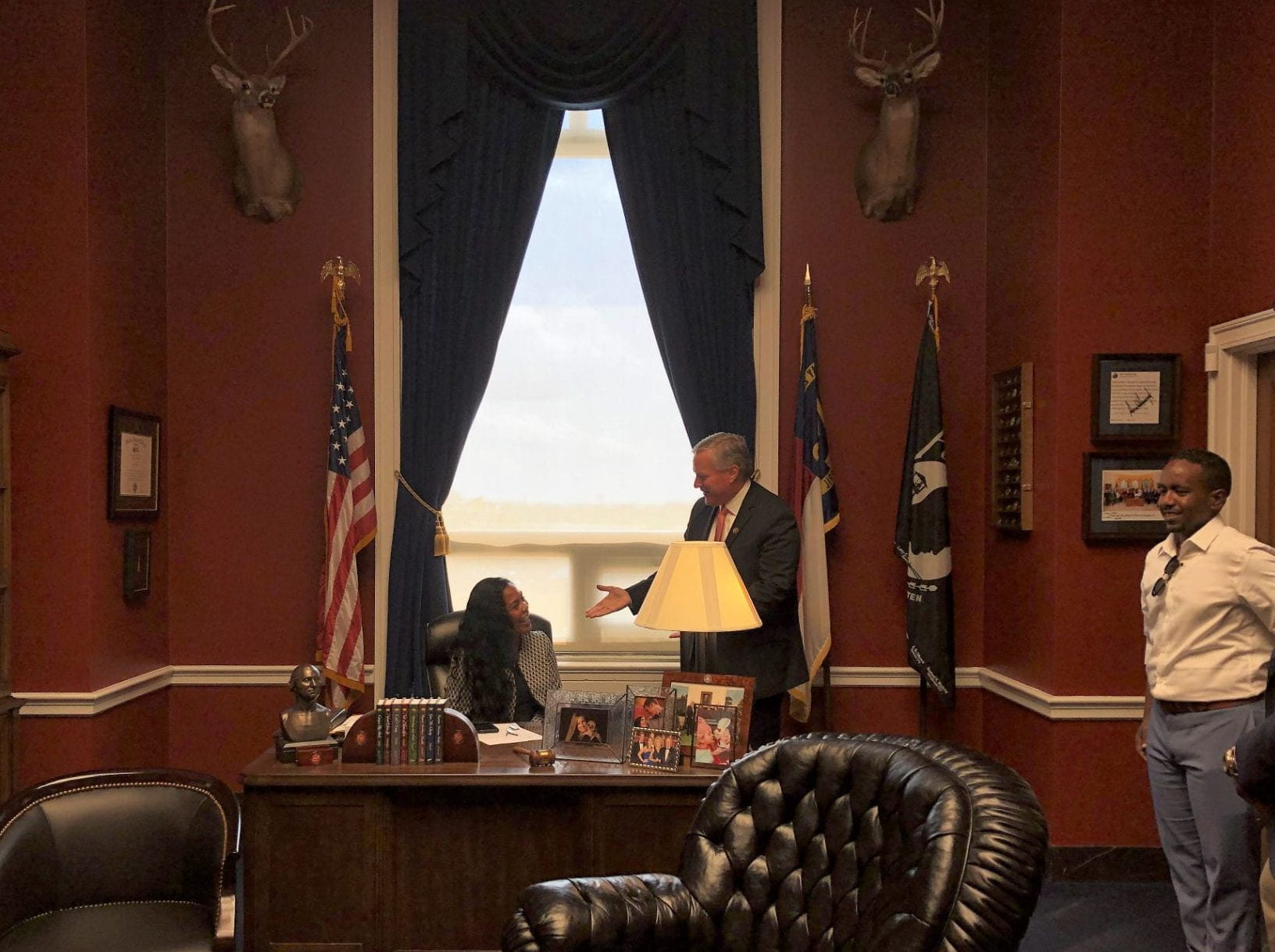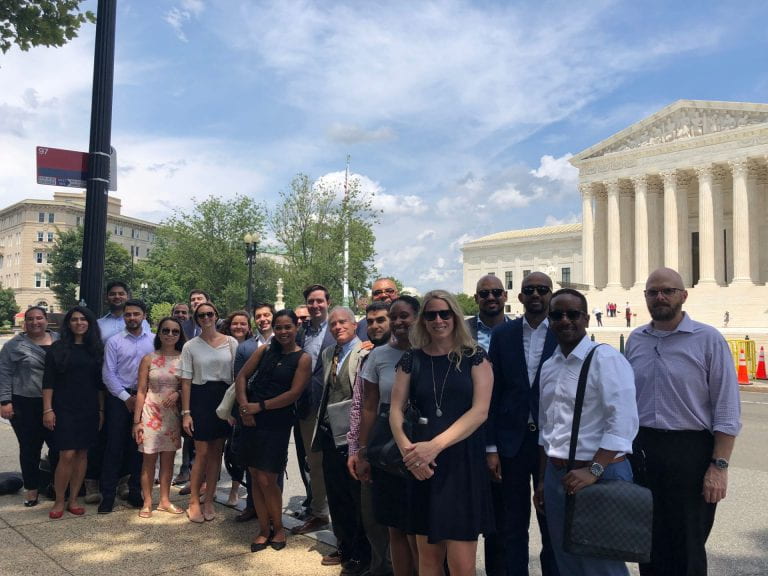By Deedi Yang - MBA '19
I have taken several Business and Society courses during my studies at GW and thoroughly enjoyed the unique learning experience each time. The hallmark of the Business and Society series is without a doubt the speakers, as they comprise the majority of the program content. The quality of learning is largely dependent on these speakers’ presentations and class engagement which are large contributing factors to how much one gains from the course. It is impossible to predict the classroom dynamic or what to expect from the different speakers, but just as it was with the other Business & Society courses I participated in, including Corporate Fraud & Corruption and Fintech, I was not disappointed.

Our first speakers Jennifer Hara, Director of PPP Services for Public-Private Partnerships at IP3 and Seth Miller Gabriel, Director of Strategic Initializes and Programs at the Association for the Improvement of American Infrastructure (pictured above) were the perfect pair to kick off the course. Their casual yet substantive dialogue was exactly the kind of engagement from which I learn best. They introduced the idea that would for me become the thesis of this course, which was that as popular as the concept of PPPs is, they are not always successful nor the best or most effective solution to a problem. This notion surprised me coming from the pair who both work as consultants for advisory firms promoting PPPs, and as such I would have expected them to be the biggest proponents of the model. As a DC resident, I appreciated Seth’s discussion of his time as the first Director of DC's Office of Public Private Partnerships and his humorous and honest account of the challenges he faced there. He also delivered the most memorable quote of the course for me which was comparing PPPs to a marriage, and that divorce is very expensive due to the negative externalities. In order for the arrangement to be successful there needed to be an alignment of interests between the public and private entities with each having something to gain from the partnership. This need to maintain a positive, mutually beneficial relationship for both parties, was a common theme expressed by subsequent speakers.

If I had to choose just one takeaway from this course, it would be the question of what a PPP is and what a PPP is not, and the fact that no two speakers had precisely the same definition. An important distinction raised for me by Professor Weiner, was his emphasis that not every privately outsourced public project is necessarily a PPP (otherwise every government contract would be considered one). I had to continually remind myself of this throughout the four days as the concept was applied in such a broad manner, it seemed to almost become a buzzword easily thrown around in business and government alike. Each speaker seemed to refer to the term a bit differently but as a basic framework there seemed to at least be consensus that PPPs deliver a public service with a private partner. Overall, everyone seemed to agree that PPPs were a good thing, but as Mark Copeland, Senior Policy Advisor to Senator Tammy Duckworth (pictured above) put it, “it is not a silver bullet, it is just another tool in the tool kit.”
As an MBA student that has worked in the public sector for the last twelve years, I take special interest in the intersection of business and politics where PPPs reside. A significant takeaway for me is that there is an unavoidable political dimension to PPPs. As such I found that our day spent on Capitol Hill provided valuable insight and was my favorite experience on both a personal and professional level. The surprise visit by Congressman Meadows was memorable as it is not common to have the opportunity to engage in discourse in such an informal manner with a sitting member of Congress (and the red taxidermy-filled walls pictured below are certainly something I will never forget).

Having recently started a new position in the Department of Energy’s Office of Congressional and Intergovernmental Affairs, I was especially interested in how partisan politics may influence a bipartisan concept such as PPPs from a policy perspective. I felt a pronounced difference between our meetings with members of Republican Mark Meadows staff and Democrat Tammy Duckworth’s staff and it was clear that interpretations of what PPPs are and how they can be best leveraged to benefit the public differ by party lines. I found Kyle Klein’s perspective as the Minority Subcommittee Director for Transportation and Maritime Security on the House Homeland Security Committee to be most interesting, as he was beholden to a policy area rather than the interests of the district or state he was elected to represent.
This course experience relates very much to my job at the Department of Energy (DOE) where for three years I worked in the Advanced Manufacturing Office supporting projects partnering with industry and academia. I am one of the unusual business school students who feels strongly that Government involvement in the private sector can promote not stifle growth and innovation. Over the course of my MBA however, and ending with this class in particular, I can now see that the public sector isn’t always necessary, that the private sector can be trusted to hold themselves accountable without regulation, and often does have better solutions for public problems. This was an extremely rewarding class that made me realize as jaded as I have become and as frustrating as bureaucracy is, I still believe in a citizen’s right to agency and prefer the inefficiency of democracy to the alternative.

Author Deedi Yang (far left) and her class are pictured above with Congresswoman Debbie Lesko


